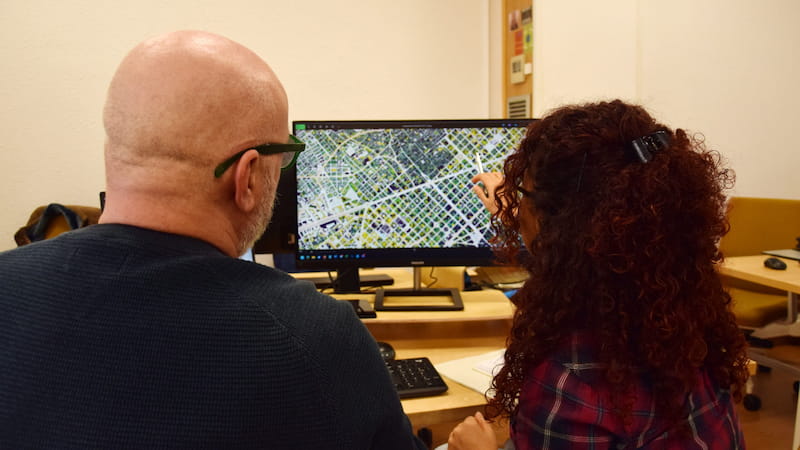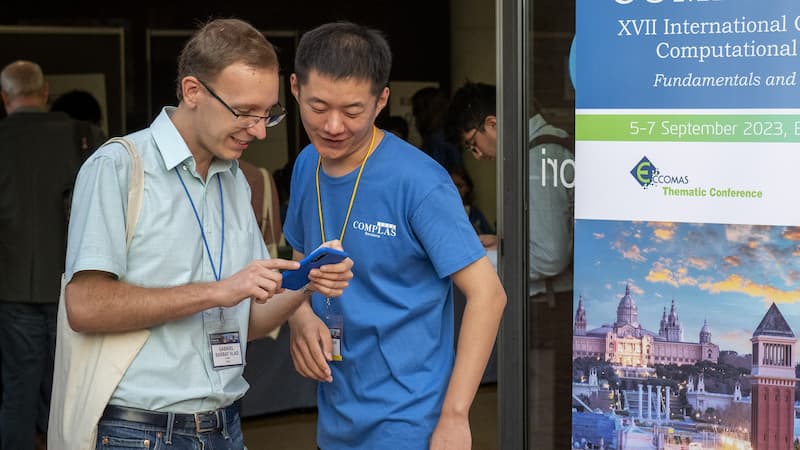📆 Monday, April 22, 2024
🕐 11 am CET
📍 OCZ Conference Room, C1 Building, UPC Campus Nord, Barcelona
ABSTRACT
This thesis aims towards the understanding and optimization of Additive Manufacturing (AM) components through the application of accurate computational multiscale simulations. The research is guided by three primary objectives: (1) the development of a multiscale orthotropic material model tailored for Fused Filament Fabrication (FFF) components, (2) the formulation of an optimization strategy to enhance the mechanical performance of FFF parts, and (3) the comprehensive characterization and modeling of their failure mechanisms.To address the first objective, a printing pattern-based orthotropic material model in the framework of multiscale analysis is constructed. This model accounts for the intricate interactions occurring at both filament and component scales in FFF, offering a nuanced representation of the material's behavior. By bridging these scales, the model ensures a comprehensive understanding of the mechanical response of FFF parts, enabling accurate predictions of their performance and failure modes.The second objective focuses on the optimization of the mechanical performance of FFF components. Leveraging the developed multiscale material model, an optimization strategy based on a novel statistics-based algorithm and an orthotropic failure criterion is formulated. The computational domain generation strategy is also tackled, analyzing different approaches and taking advantage of an Adaptive Mesh Refinement (AMR) technique to reduce the computational cost of the simulations. The developed methodology is fully embedded into the AM workflow.The final objective involves the characterization and modeling of the different failure mechanisms present in FFF parts. The different failure modes exhibited by FFF components are identified for each printing pattern present in the component, and a Mechanism-Based (MB) damage criterion is developed to model their stiffness degradation. In addition, an MB cracking model that accounts for the orthotropic brittleness of FFF parts is presented and validated against experimental tests.The central motivation driving this thesis is to alleviate the dependency on costly experimental procedures for characterizing and/or predicting the mechanical behavior of FFF components by performing high-precision and inexpensive multiscale simulations. The outcomes of this study aim to improve the current Design for Additive Manufacturing (DfAM) guidelines.
Committee
- President: Dr. Ferdinando Auricchio
- Secretary: Dr. Oriol Lloberas Valls
- Member: Dr. Miquel Domingo-Espin
- PhD advisors: Dr. Luís Miguel Cercera, Narges Dialami
PHD CANDIDATE
 Mr. Iván Rivet is a PhD candidate at the Industrial Manufacturing Processes group at the International Centre for Numerical Methods in Engineering (CIMNE). He works under the auspices of the European project H2020 KYKLOS 4.0 – An Advanced Circular and Agile Manufacturing Ecosystem, focused on rapid reconfigurable manufacturing processes and individualized consumer preferences. His research contributions include multiple first-author publications in high-impact journals and presentations at international conferences.
Mr. Iván Rivet is a PhD candidate at the Industrial Manufacturing Processes group at the International Centre for Numerical Methods in Engineering (CIMNE). He works under the auspices of the European project H2020 KYKLOS 4.0 – An Advanced Circular and Agile Manufacturing Ecosystem, focused on rapid reconfigurable manufacturing processes and individualized consumer preferences. His research contributions include multiple first-author publications in high-impact journals and presentations at international conferences.






